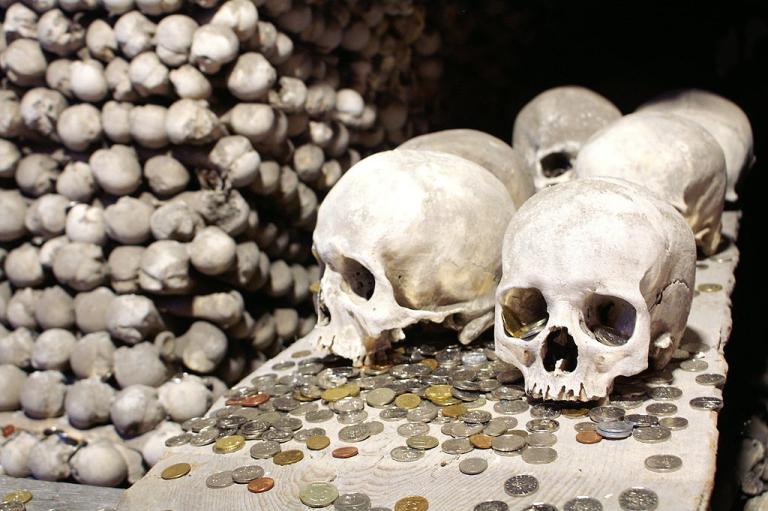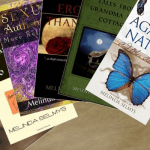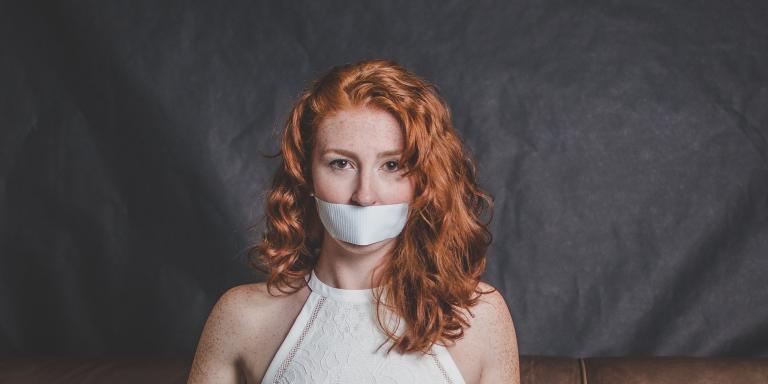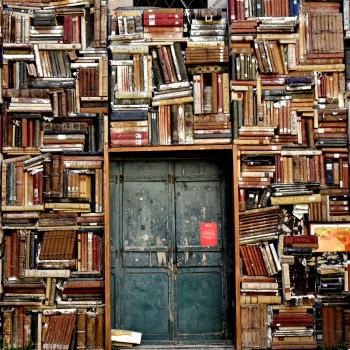So I’ve been binge-watching The Walking Dead recently, and naturally my mind has turned to the question of what’s up with our society that zombies have become a major cultural obsession. What is it, exactly, that we’re working out in our collective psyche?
Simcha Fisher attempted to answer this a while back. Her answer was basically that the zombie represents the threatening Other: “”Syrian refugees” or “people with autism” or “Mexicans” or “the disabled” or “the poor” or “Catholics” or “atheists” or “Jews” or “fetuses” or “Muslims” or “millennials” or “the elderly.”” It’s a neat theory, and I think that it’s partially true, but I don’t think it’s a sufficient answer. The main reason I think it fails is that in the only case that I can truly scrutinize in detail, my own, it doesn’t add up.
I don’t watch zombie horror because I want to imagine hard case scenarios where it’s permissible to kill other human beings, and I don’t watch zombie horror because I like the idea of a small group of embattled heroes fighting against hordes of the undead. I’m determinedly pro-community and anti-libertarian, and I’m the kind of person who thinks seriously about whether it’s a problem that our discourse dehumanizes Nazis. Zombies don’t represent a group of human others who I don’t see as human – they represent the inhuman: vicious, sub-animal appetite made terrifying by its superficial resemblance to humanity. A zombie is me divested of everything that makes me a person. It’s basically just pure insatiable appetite.
So what is the appeal?
I think it’s that zombie fiction, and indeed all forms of apocalyptic fiction, are a kind of memento mori for the human race.
One of the huge changes that has taken place in my generation is the development of a much more sophisticated form of collective human consciousness. The collective unconscious has always been a thing, produced as a natural extension of transmitted language and culture. Certain symbols, ideas, presuppositions, dreams and nightmares lurk beneath the surface of every cultural representation and these submerged artifacts of human community form the substance of a shared reality which we’re often unaware of.
Collective consciousness, on the other hand, is basically the visible content of culture, the ideas that we’re aware of, that we discuss, that we think about as a group. I think there’s no way of denying that the basic shape of cultural consciousness has altered in the past 30 years in a way more radical than anything since the invention of the printing press. Possibly it’s even bigger than that, and we haven’t seen a shift of this magnitude since the invention of written language.
In any case, the internet changes the type of selfhood that human beings possess. To give just a simple illustration of this: when I was young, and Google did not yet exist, if I wanted to make an argument I had to go to the contents of my own head and develop a position based on whatever happened to be there. In the case of a more complex argument I might go and do research, increase my store of knowledge, and then craft an argument. In either case, the point is that my knowledge constituted a personal possession, a storehouse which I could draw on and from which I could share with others. A relatively robust membrane existed between my own knowledge-store and the collective knowledge of my culture.
Today, it’s different. We frequently hold informal conversations in the medium of text, and it’s absolutely normal to dip into the common pool of knowledge in mid-stride. If someone uses a word I don’t know, I Google it, and immediately I know it. If reference is made to an historical event that I know nothing about, Wikipedia enlightens me in minutes. If I have something catalogued in my own mind in a vague way, such as “I think there was a Roman emperor who purchased the imperium from the Praetorian guard,” it will only take me a moment to “recall” that his name was Didius Julianus and that he lived in the late 2nd century – not by rummaging about in my own memory, but by consulting a search engine.
Our continuous connection to the collective consciousness of the internet produces a sense of identity that is much less individualistic, one in which we are increasingly aware that “we are a gift, not something self-generated. Our freedom is profoundly shaped by our being, and by its limits. No one shapes his own conscience arbitrarily, but we all build our own “I” on the basis of a “self” which is given to us.” (Caritas in Veritate)
With the rise of new forms of connectivity, there arise, quite naturally, new forms of fear. Specifically, we fear the collapse of civilization not merely as a loss to the individual self, but also as a loss to the collective self. Who, and what, would we be if we were severed from the global community that gives shape to postmodern identities? Would we still be human? What would life be like and would it be worth living? How and why would the survival of the isolated individual be a worthwhile task?
These questions haunt us in this moment precisely because of the threats and opportunities presented to the individual as a result of the weakening of the boundaries that circumscribe the self. We simultaneously fear that we will lose the individual self as collective forms of thinking, reasoning and remembering become increasingly instantaneous, and at the same time we fear that this collective self that is being born through our technologies will prove fragile. That we, not as individuals but as a collective, are mortal.
So we have nightmares. Nightmares in which unthinking herds, collectives without intelligence, ravage the world and the individual must go on surviving. Surviving and surviving without relief, cut off from the global identity that gave purpose to his existence. Postmodernity dreams, with both nostalgia and terror, of a return to the more individualistic modern self.
The rise of zombie fiction, it’s blossoming from a camp sub-genre of the horror scene to a major cultural phenomenon, is a form of postmodern momento mori. The zombie is not so much the terrifying Other – the immigrant, the homosexual, the Trump supporter (whomever you feel threatens your civilization) – as it is the skeleton with his terrible grin, his crooked finger pointing towards an inscription: “Remember, you are mortal. All y’all are gonna die.”
Image by Juliancoccia (Own work) [CC BY-SA 3.0 (http://creativecommons.org/licenses/by-sa/3.0) or GFDL (http://www.gnu.org/copyleft/fdl.html)], via Wikimedia Commons
Stay in touch! Like Catholic Authenticity on Facebook:













